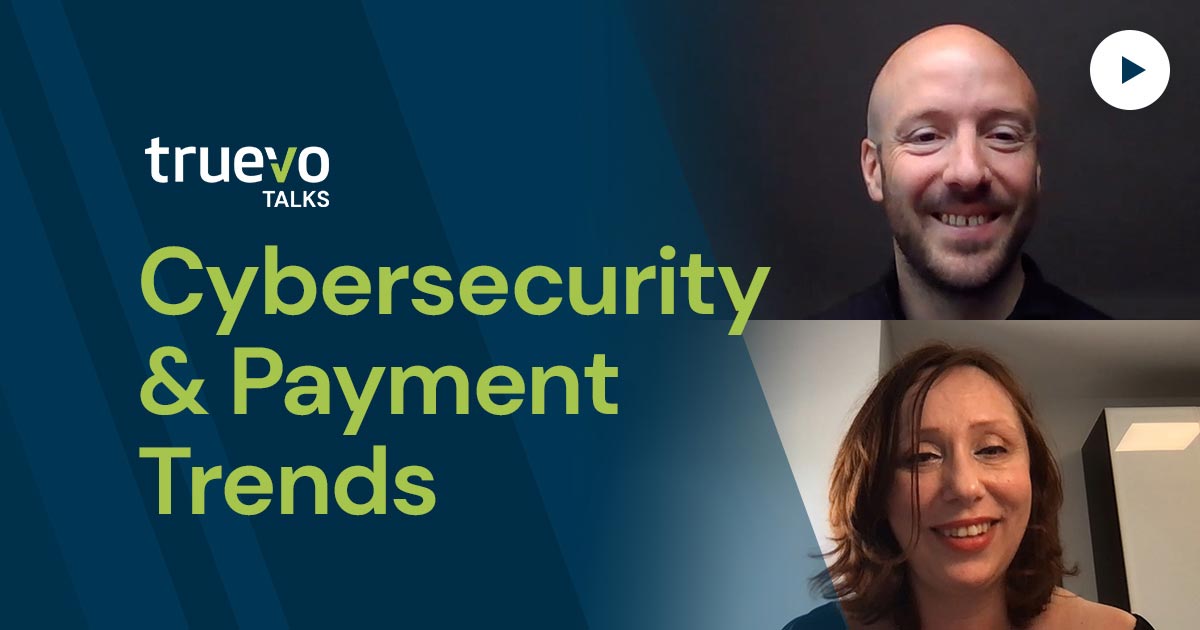The pandemic catapulted the world towards everything digital. It affected everything, from cybersecurity to supply chains and beyond.
TruevoTalks takes a closer look at digital trends, cybersecurity and digital payments with Steve Brown, Director of cybersecurity and resilience at MasterCard Europe, and Barbara Zamponi, Chief Risk Officer at Truevo.
Steve also worked in the UK’s National Cyber Crime Unit for 17 years. He talks about cybercriminals’ sophistication, “They’ve learnt good and bad security practices and leverage different technologies to circumvent modern security systems and legislation. Collaboration between them has grown exponentially, as has their expertise. We have to do the same.”
Where criminals previously embezzled cheques or abused cards, they now gather and abuse bulk data. Contactless and digital payments have revolutionised payments, particularly after the pandemic. But, if good security practices do not underpin them, they offer opportunities for cybercriminals and organised crime to gather bulk data and launder money across the globe.
Supply chain protection
To counter this, Mastercard focuses on supply chains. Cybercriminals focus on the weakest point in the ecosystem. If acquirers, card issuers and banks don’t have oversight of their suppliers’ cybersecurity, that’s where the system is open to attack.
According to Steve, Mastercard merchants generally have suitable security measures in their infrastructure. Still, they cannot see their providers, vendors or third or fourth-party suppliers’ systems. That’s what criminals target and attack.
Barbara Zamponi from Truevo agrees. She says that Truevo looks at a combination of fraud and Anti Money Laundering (AML) risks. She points out that cybersecurity breaches cost companies more than financial losses. They also lead to reputational damage and loss of business, and merchants must carry the cost of patching the breach.
Cybersecurity and the pandemic
During the pandemic, Mastercard launched and supported various initiatives to help health care professionals and merchants defend themselves against cyberattacks. The Health Care for Heroes initiative provided free cybersecurity and risk assessments to health care professionals to identify vulnerabilities, protect their infrastructure, and action plans and mitigation measures.
Risk Recon, a recent acquisition by Mastercard, provided merchants with free corporate cybersecurity packages that helped them mitigate any cyber attacks.
Steve shared that Mastercard is developing a safety net and intelligence that allows the entire financial sector to make real-time decisions about authorising transactions and moving money. Mastercard is working with the Global Cyber Alliance and the Cyber Readiness Institute to help build internal education and awareness for their customers. They also created the MasterCard European Cyber Resilience Centre to connect financial institutions, merchants, governments and all relevant parties in cyber transactions to share ideas and best practices.
Barbara and Steven agree the only way companies can fight cybercrime are to collaborate and train staff. Cybersecurity should be embedded in the digital age culture and seen as an investment rather than a cost.
Payment trends
The biggest trends are usually the biggest threats in cybersecurity. Biometric authentication poses exciting developments. Smart speakers, fingerprints, and facial and retina authentication are being explored. Each holds security risks but promises to be more reliable and secure.
Tracking and tracing transactions in the age of cryptocurrencies have also become essential. Mastercard’s new acquisition, CipherTrace, will help detect, prevent and shut down money-laundering operations. To discover other payment trends listen to the full episode of TruevoTalks on Spotify.



